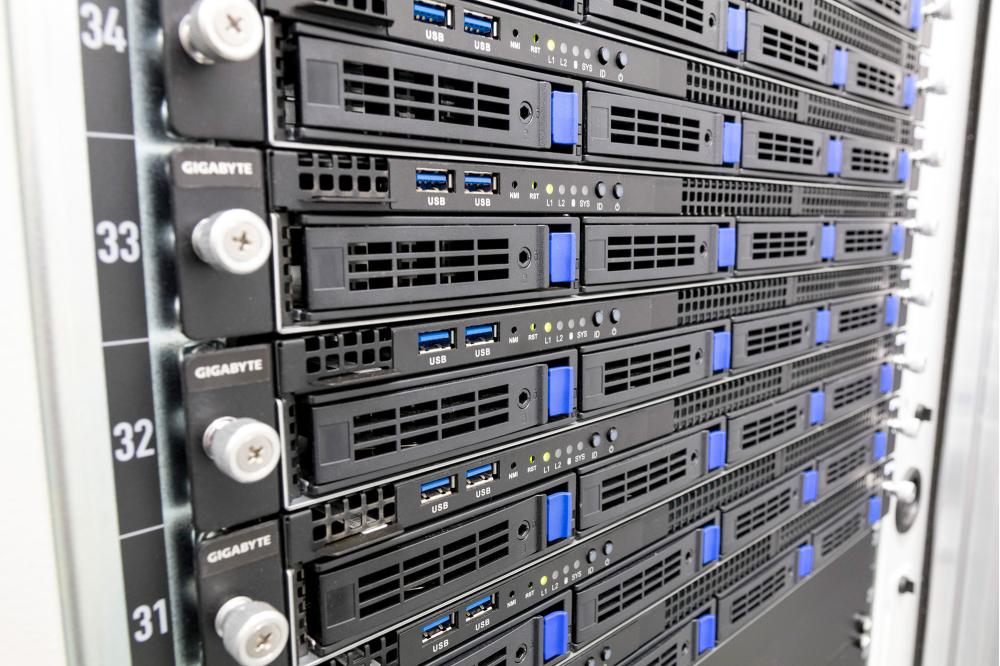New HPC System "MaRC3" in Marburg
The cluster is located at the Center for Synthetic Microbiology (Synmikro). Its scientific focus are calculations in the fields of bioinformatics, pharmaceutical chemistry and theoretical physics. Emphasis is placed on high-performance GPU accelerators that boost molecular and physical simulations, image processing, pattern matching and AI workloads.
MaRC3 currently comprises 26 compute nodes with 64-core AMD EPYC CPUs and memory sizes ranging from 256 GB to 1 TB. GPU performance is provided by 50 Nvidia accelerators (A100, A40 and V100S). In a next expansion stage, 24 additional compute nodes and 26 additional A100 GPUs are expected by September 2022.
Realization of the System was enabled by a cooperation of research groups from the departments of physics, pharmacy, biology, mathematics & computer science as well as medicine, initially lead by Prof. Dr. Bruno Eckhardt. After Prof. Eckhardt‘s unexpected death in August 2019, Dr. Marcus Lechner stepped in to coordinate the project. Bidding began in March 2020, a first testing run started in spring 2021. Among other things, the COVID-19 pandemic caused significant delays. Configuration for productive operation could be mostly finalized by the end of 2021. The system is run and maintained by the Center for Synthetic Microbiology in close cooperation with the University Computing Center (HRZ). HPC resources that are not currently in use by the cluster‘s original contributors are available to all of Marburg‘s research groups.
A special feature of the MaRC3 cluster is its direct access to another recent installation, the Marburger Storage Cluster (MaSC). This highly scalable storage cluster provides research groups with means to long-term store large volumes of data. Thanks to the direct interconnection of both systems, processing and analysis of big data can be performed on-site without additional transfer detours to temporary storage.




